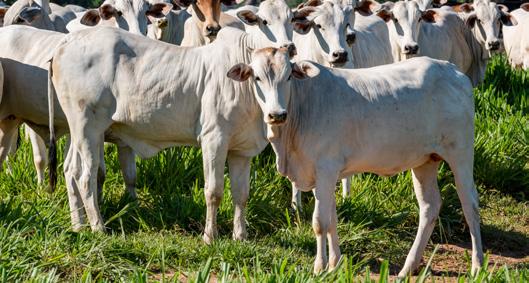WHO NEEDS TO DO WHAT The steps that food industry, financial institutions and governments take in the immediate future in relation to JBS, Marfrig and Minerva – some of the world’s largest meat processors – and the global meat industry as a whole will be a decisive test of their priorities. Governments and companies must align the economy with biodiversity and climate protection, along with social justice. They must ensure that private and public finance, trade policy and overseas cooperation do not drive further deforestation, but do support nature restoration and a transition to a green, just and resilient economy. This includes:
CLOSE THE MARKET TO FOREST DESTROYERS:
TRANSFORM THE FOOD SYSTEM:
DROPPING FOREST AND ECOSYSTEM DESTROYERS:
PHASING OUT INDUSTRIAL MEAT: Immediately
End finance for or trade with groups such as JBS
begin the phase-out of all finance for or trade in
whose direct or indirect suppliers are linked to
industrial meat, with the aim of reducing overall
deforestation and alleged human rights violations –
meat and dairy production and sales by at least
this includes ending trade with subsidiaries such as
50% by 2025 and 70% by 2030 in countries with
JBS-owned Pilgrim’s Pride, which owns Moy Park and
high levels of meat consumption. 413
Tulip (recently renamed Pilgrim’s Pride Ltd412).
DROPPING COMMODITIES linked to forest and
MAKING FULL TRANSPARENCY A CONDITION OF TRADE: Make full transparency of group
ecosystem destruction: Including through the
operations and the supply chain a condition
adoption of a law on forest and ecosystem risk
of finance or trade, requiring open and
commodities (FERCs) and derived products, to
comprehensive monitoring and reporting
ensure that commodities and products linked to
systems to be in place.
deforestation, ecosystem destruction and abuses legislation should include measures to cover the
PRIORITISING HUMAN AND ENVIRONMENTAL HEALTH: Introduce targets, legislation and
financial sector, ensure full supply chain traceability
fiscal measures to decrease production and
and transparency and rules on due diligence.
consumption of meat and dairy products in
of human rights are not placed on the market. The
countries with high levels of consumption and
ENSURING TRADE POLICY ALIGNS WITH CLIMATE, BIODIVERSITY AND SOCIAL JUSTICE GOALS: This
support a fundamental shift towards ecological
includes refusing to ratify trade deals such as the EU–
reduce pressure on natural ecosystems.
farming and healthy plant-rich diets in order to
Mercosur agreement. Trade agreements of this kind are based on an extractive model that commodifies people and nature and is inherently incompatible with forest protection - governments should instead protect forests and other natural ecosystems by adopting policies to decrease meat production and consumption, and addressing their external forest and ecosystems footprint by means of product and supply chain regulations.
93












